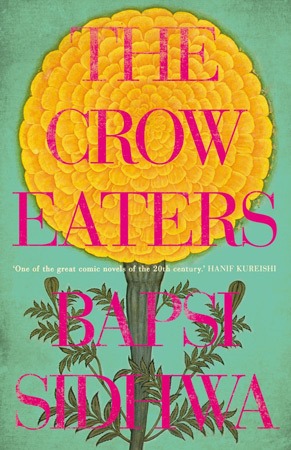The debate that art should work only as art to entertain, called Art for Art’s sake, or that art should have some didactic purpose has converted into one in the writings of Bapsi Sidhwa. In her fiction, these two have been skillfully combined into one that one is amused by the narrative and characters along with the absorption of some much-wanted learning as well. As a writer, she spreads her powerful message for the youth, especially her community, to keep attached to moral, social, and civic values to achieve viable and higher standards of culture and civilisation. Sidhwa, a Parsee, counts on her community’s traditions and cultural values in an attempt to preserve her culture in a Muslim-majority country. Still, her message is not restricted to the Parsi community alone because the news of literature is for every reader, generally and globally.
Article by Dr. Zia Ahmed | Daily Times
 Some of the values discussed by the writer about her community are avowedly the source of inspiration for every human being. For example, her story in Crow Eaters records the tradition of planting a tree by the couple as soon as they get married. This way, the narrative communicates the significance of plants and trees in human life. With one tree planted at the time of the wedding, the couple becomes not only the symbol of love but also a source of a healthy environment for a long-lasting time. Besides, the moral preaching that the parents are always right and must be obeyed at every cost is another tradition meant to benefit from the experience and learning of the older generations by following the decisions made by them instead of becoming independent and making mistakes and land under challenging circumstances. This obedience is not only advocated for the children but women, as wives have also been encouraged to follow the advice of their husbands to maintain perfect harmony inside and outside the couple’s home. Another fascinating tradition mentioned by Sidhwa in the novel Crow Eaters is mixing salt in the drinking water by the young one of the family who wishes to marry. This custom is meant to convey the need for marriage in a very obedient way to the parents without causing embarrassment. Salt is a natural spice of life without which the food remains dull, untasteful, and may be uneatable. Besides bringing excitement and energy to the family, mixing salt in water indicates that they are ready and willing to add the spice of love to life.
Some of the values discussed by the writer about her community are avowedly the source of inspiration for every human being. For example, her story in Crow Eaters records the tradition of planting a tree by the couple as soon as they get married. This way, the narrative communicates the significance of plants and trees in human life. With one tree planted at the time of the wedding, the couple becomes not only the symbol of love but also a source of a healthy environment for a long-lasting time. Besides, the moral preaching that the parents are always right and must be obeyed at every cost is another tradition meant to benefit from the experience and learning of the older generations by following the decisions made by them instead of becoming independent and making mistakes and land under challenging circumstances. This obedience is not only advocated for the children but women, as wives have also been encouraged to follow the advice of their husbands to maintain perfect harmony inside and outside the couple’s home. Another fascinating tradition mentioned by Sidhwa in the novel Crow Eaters is mixing salt in the drinking water by the young one of the family who wishes to marry. This custom is meant to convey the need for marriage in a very obedient way to the parents without causing embarrassment. Salt is a natural spice of life without which the food remains dull, untasteful, and may be uneatable. Besides bringing excitement and energy to the family, mixing salt in water indicates that they are ready and willing to add the spice of love to life.
Moreover, many of Freddy’s actions and plans in the story are also meant to convey instruction and moralizing to the world. As soon as the story begins to unfold, Freddy is found telling his young one that our need is the success of our life because if one has no need, one will not work hard to provide for quality of life, so one must have needs because these urge us for hard work and evolve our standards of life. This lesson Freddy gives as a part of their culture that the elderly are required to tell such things out of their experience of life to their young ones.
Freddy, however, fails very severely in getting rid of his mother-in-law. He planned to put his house on fire to get rid of his mother-in-law and reap dividends from the insurance company. But his plans ironically fail because Jerbano saves herself by jumping down the house with the help of the crowd gathered and becomes an even more significant source of irritation for him. He neither gets any fruitful money from the insurance company. The message of this failure is learning for anyone who wants to thrive in the lives of his people just for the sake of money that won’t help. The only workable path is hard work of life and the wisdom of life.
Putli, the wife of Freddy, is equally a paragon of virtues of Parsee culture because she is thoroughly obedient to her husband. Her very name indicates that she would always be ready t put her fate in her husband’s hands and do any service for the happiness of her husband and her family. She does so through her wifely and motherly role and remains a faithful and triumphant wife to her husband, even after knowing the little acts of the faithlessness of her husband. She even does not object to the ill-treatment of her husband towards her mother. So, the narrative of Sidhwa is both a novel that provides a bright and vigorous glimpse into the life of the Parsee community but also spreads a healthy and positive debate on the values of Parsee culture. As a result, it becomes a document of both entertainment and moralizing.
The writer is a professor of English at Government Emerson University, Multan. He can be reached at zeadogar@hotmail.com and Tweets at @Profzee

